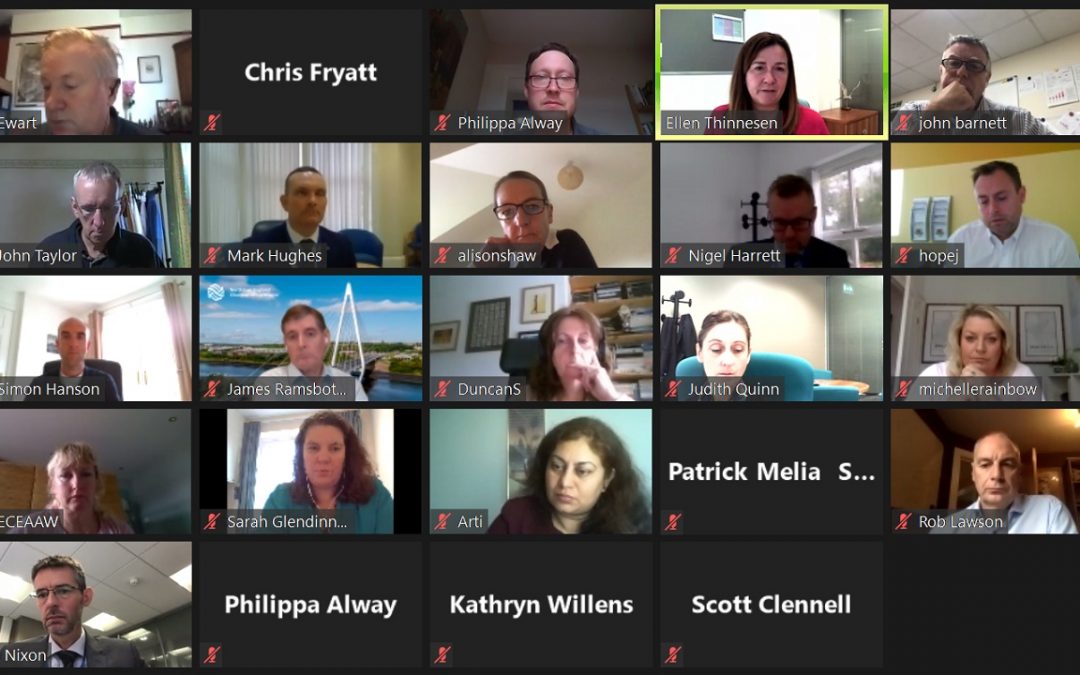The Independent Commission on The College of the Future held a virtual roundtable at Sunderland College attended by leading figures from across the North East.
Launched in March 2019, the Commission aims to set out a new vision for colleges in England, Northern Ireland, Scotland and Wales and will produce a final report with clear recommendations to be published in Autumn 2020.
Featuring prominent names and experts from industry, education, the media and the trade union movement, the Commission is supported by key organisations from across the Further Education and skills sector.
Taking place via Zoom on Wednesday 26 August and chaired by Education Partnership North East chief executive Ellen Thinnesen, the event looked at what is wanted and needed from colleges by 2030 and beyond, how this can be achieved and their vital role in the UK’s recovery and growth following the COVID-19 pandemic.
The Commission gained a unique overview of the North East and the needs of the region to inform their inquiry and the key role of further education and skills in its development.
Roundtable attendees heard how Education Partnership North East’s group of colleges, which includes Hartlepool Sixth Form, Northumberland College and Sunderland College is engaged in collaboration and long-term partnership building to provide high quality, learner focused qualifications to meet employers’ needs and fill industry skill gaps.
The event gave attendees an opportunity to share ideas with government bodies, educational experts, sector representatives and connect with other industry sectors to reflect on the Commission’s recommendations, existing systems features, impact, and opportunities.
Ellen Thinnesen, said: “We were delighted to host the Commission’s roundtable and welcome so many of our key partners who all recognise the crucial role all college’s play in the North East.
“The event helped renew and reaffirm colleges as central to ‘people, productivity and place’ and to meet long term challenges, from demographic change and the climate crisis, to technological revolution, and the changing demands of the labour market.
“With a significant need to level up the North East, it was a great opportunity for our region to challenge and contribute to the Commission and talk technical skills, upskilling and reskilling, and the economy.”
The roundtable included sector leaders including Rob Lawson, Education Partnership North East chair of governors; James Ramsbotham, North East Chamber of Commerce chief executive; Patrick Melia, Sunderland City Council chief executive; Michelle Rainbow, North East LEP skills director; Shona Duncan, Tees Valley Combined Authority head of skills, education and employment; John Barnett, Marelli Automotive operations director; and Jeff Hope, Akzo Nobel Limited head of manufacturing; Sarah Glendenning, regional director North East CBI; Simon Hanson, North East development manager FSB; and Alison Shaw, professor of practice for student success and progression Newcastle University. Also attending were representatives from the Association of Colleges and the Education and Skills Funding Agency.
Commissioner Professor Ewart Keep presented key themes and emerging recommendations from the Commissions’ previous workshops and roundtables.
Professor Keep, who is and co-director of SKOPE at the University of Oxford, added: “Working with colleges and their stakeholders to develop our recommendations for the college of the future is critical.
“The discussion in collaboration with Education Partnership North East on our emerging recommendations for England was a great opportunity to hear both the challenges and the many examples of good practice in the North East.
“There is clearly a huge amount we can build on as we build the college of the future. Now, we are continuing to hold conversations with colleges and their local stakeholders across the UK as we work towards launching our final report this autumn.”
To find out more about the ‘College of the Future’ visit www.collegecommission.co.uk or follow the Commission on Twitter @CollegeComm.
